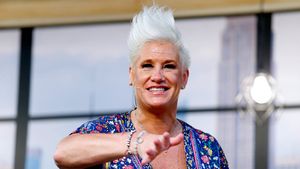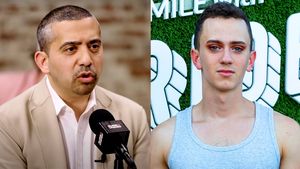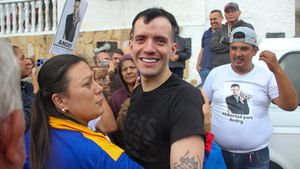Treatment GuideJust DiagnosedSex & DatingAfrican AmericanStigmaAsk the HIV DocPrEP En EspañolNewsVoicesPrint IssueVideoOut 100
CONTACTCAREER OPPORTUNITIESADVERTISE WITH USPRIVACY POLICYPRIVACY PREFERENCESTERMS OF USELEGAL NOTICE
© 2025 Pride Publishing Inc.
All Rights reserved
All Rights reserved
Scroll To Top
By continuing to use our site, you agree to our Privacy Policy and Terms of Use.
I had a little difficulty choosing a topic for this column. I did, however, find it difficult to write about. Typically, writing for me is as natural as breathing. Words easily connect with one another, crisply and clearly revealing what they ought. And certain topics I've covered--including those as difficult as my own depression or my best friend's physical assault--were relatively easy to narrate, compared with the one I chose for this column. Perhaps this speaks to the depth of its intensity and the work lying ahead of me to process it. Perhaps it also reveals that some experiences are beyond words. A scant three months--90 short days--separate the two most painful and pivotal moments of my life: October 1, 2004, and January 4, 2005. On October 1, I received my HIV diagnosis. On January 4 my mother died. To this day I am uncertain how I got through it. In my previous column I discussed depression from an attitudinal perspective--those moments in life where we shut down, unaware of our choices and unconsciously choose 'nothing' rather than 'something.' I wrote of the warm, sunny day in Chicago where my temptation was to hide indoors rather than enjoy the day. I implied in that column that the solution to melancholy frequently resides in one's thinking; that a shift toward what's possible dislodges one's depression and allows space for some contentment. October 1 to January 4 was impervious to such a solution. There I was, barely able to comprehend my own diagnosis that stirred notions of my own mortality. And there I was, confronted with the very final mortality of the woman who gave birth to me, raised me, loved me, and knew me longer than anyone else possibly could. She was gone. Forever. As I said above, to this day I am uncertain how I got through it. Here's the short answer: I did a lot of healthy things, I did a lot of self-destructive things, I did what felt familiar, I tried to do my best, I did more self-destructive things, I cried a lot, I went to therapy, I did some more self-destructive things, I asked for help, I did what felt good, I took medication, I took others' advice, I did some more self-destructive things. In the final analysis I encountered the limits of my understanding, my training, my self-will, my determination, my intellect. I needed a lot more help than I thought because I didn't have the answers, and I was more lost than I ever thought I could be. The truth is that I survived out of desperation and even with a pattern of poor decision-making and self-destruction, managed to find the courage to ask for help. And it goes without saying that I was grateful that such help exists in the first place. You see, when traumatic, life-changing events occur, people seldom respond in tactful, measured and sane responses. They usually just freak out and try to do their best. As I write this, I feel anxious given the level of vulnerability I am showing. It feels that I may be revealing too much. And at the same time it feels liberating. I had never thought of myself as a strong person--had always wondered how I would respond if something 'really bad' happened. I still sometimes question how 'strong' I truly am. One thing I cannot question, however, is whether I'm resilient. Fransen is a licensed clinical social worker who is in private therapy practice in Chicago. He welcomes feedback at stillpoint4003@yahoo.com.
Recommended Stories for You
From our Sponsors
Most Popular
BREAKING NEWS: Trump admin moves to end federal HIV prevention programs
March 18 2025 6:10 PM
Grindr is reminding us why jockstraps are so sexy and iconic
May 02 2025 5:36 PM
Trump's orders prompt CDC to erase HIV resources
January 31 2025 5:29 PM
Celebrating Black History Month with our annual African American issue
February 01 2025 3:28 PM
Tyler TerMeer vows to continue to fight for health care for all
January 28 2025 3:00 PM
Discover the power of Wellness in your life
March 26 2025 12:41 PM
Plus: Featured Video
Latest Stories
The Talk: Starting the conversation
2 hours ago
BREAKING: Supreme Court rules to save free access to preventive care, including PrEP
June 27 2025 10:32 AM
HRC holds 'die-in' to protest Trump health care cuts
April 28 2025 2:11 PM
Season 4 of The Switch on resilience & radical self-love returns this spring
March 26 2025 12:20 PM
Lexi Love comes out as HIV+ after Trump deletes federal resources
January 23 2025 11:23 AM
A camp for HIV-positive kids is for sale. Here's why its founder is celebrating
January 02 2025 12:21 PM
“I felt like a butterfly”: Niko Flowers on reclaiming life with HIV
July 23 2025 12:22 PM
1985: the year the AIDS crisis finally broke through the silence
June 26 2025 11:24 AM
Trump admin guts $258 million in funding for HIV vaccine research
June 03 2025 3:47 PM
Two right-wing Supreme Court justices signal they may uphold access to PrEP and more
April 21 2025 4:10 PM
Broadway's best raise over $1 million for LGBTQ+ and HIV causes
April 03 2025 7:15 PM
Jess King is here to help you live your happiest, healthiest life yet
March 24 2025 4:35 PM
Dancer. Healer. Survivor. DéShaun Armbrister is all of the above
July 02 2025 8:23 PM
VIDEO: A man living with HIV discusses his journey to fatherhood
June 10 2025 4:58 PM
500,000 Children at Risk: PEPFAR Funding Crisis
April 08 2025 3:51 PM
The Talk Season 5 premieres this spring with HIV guidance for the newly diagnosed
March 26 2025 1:00 PM
Gerald Garth is keeping people of color happy and healthy through trying times
March 11 2025 3:38 PM
Plus nominated for 2025 GLAAD Media Award
January 22 2025 12:42 PM


















































































